On September 29, the Brookings Institution and International IDEA co-hosted a full-day workshop convening high-level experts from Latin American embassies, the U.S. government, academia, and civil society to discuss current trends in Latin American democracy. The moderators of each session have authored blog pieces highlighting the main points of consensus, as well as ongoing challenges, related to their session theme. Read Ted Piccone’s blog post here, Daniel Zovatto’s here, and Harold Trinkunas’s here.
As the sound and fury of 2017 winds down, little if any of Washington’s attention—beyond the renegotiation of the North American Free Trade Agreement and maybe Cuba—has been conferred on the Trump administration’s policies and discourse on inter-American affairs. My colleagues at a recent Brookings seminar on the political future of Latin America addressed some of the relevant issues at play in previous posts here on this blog. I will take a slightly different tack and focus on some of the lessons—and perceptions—being gleaned across the Americas as a result of the U.S. presidential election and its aftermath.
For starters, there’s no doubt that three of the pillars of President Donald Trump’s foreign policy view—as enunciated during his first major foreign policy speech in April 2016 and implemented in his first year in office—have been received with varying degrees of anxiety throughout the Western Hemisphere. These three pillars—“America First,” less U.S. predictability, and his Sinatra Doctrine of “my way or the highway”—all rub Latin American nations the wrong way and rekindle what had been generally waning perceptions of the last decade regarding a bullying and overbearing U.S. hegemon. And the three main prisms through which most Latin American and Caribbean nations viewed the U.S. foreign policy footprint in the Americas—that is, Cuba, immigration policy, and counternarcotics policy—have all experienced a reversal, if not a continued impasse or deterioration, particularly compared to the end of the Obama administration. Unsurprisingly, the U.S. national brand, soft power, and public diplomacy footprints have all taken a severe hit across the Americas, and the rest of the world for that matter.
But there’s one legacy of the 2016 U.S. presidential election and its aftermath that poses a more subtle—but probably also more relevant and prescient—challenge to democratic governance and liberal democracy across Latin America. The U.S. election was won—and lost—not on the merits and the debate over substantive and contrasting public policies, but by narrative and storytelling. The U.S. electorate went to the polls in the context of a fact-free political landscape, Teflon-coated to hard data. That “alternative facts” reared their head and gained traction as a tool to challenge and dispute any and all political views different from the mainstream political debate was no coincidence. That this was also fueled by weaponized narratives, disinformation, astroturfing and bot-farms (whether of domestic or foreign origin), and on social media platforms, fundamentally changed electoral dynamics—both in the United States and, most likely going forward, in other nations across the hemisphere that will be holding presidential elections throughout 2018.
Regardless of what Latin Americans may have thought of the 2016 electoral process and outcome in the United States, political parties, polling firms, and electoral and campaign consultants did not miss a beat as to how the 21st century political and electoral landscape has been reshaped by the Brexit vote and Trump’s against-all-odds electoral victory. Prospective candidates and their consultants in key Latin American nations have been poring over the weaponization of social media and narratives; Russia’s manipulation of Facebook, Google, Twitter, YouTube, and other sites; the role of the dark web; and how big data was employed and mobilized in the U.S. presidential election. In many ways, one of the most pernicious lessons in some corners of the Americas of the U.S. primary and general elections is that democratic institutions and the rule of law—in a region where both have historically faced significant challenges—are up for grabs via the online world, and at pretty inexpensive rates at that. For example, recent analysis has shown that the first $100,000 that the Russians spent on Facebook reached as many people as voted in the U.S. election.
You don’t have to be a rocket scientist in Latin American politics to figure out that one of the lessons of Trump’s victory is that once digital, tech, and social media companies achieved their goal of connecting the world and enacting a business model that depended on advertising, they also had to put in place techniques geared to creating online addiction. Then when smartphones came along, it created digital firepower and an opportunity to drive a level of brain hacking that had never previously been seen. It should come as no surprise that Cambridge Analytica, the behavioral, data mining, and microtargeting firm that played a relevant role both in the triumph of the “yes to Brexit” vote and Trump’s victory, has, for example, set up shop in Mexico, which faces a highly contested race; in the last two presidential elections in Mexico, there have been accusations of fraud and of campaign and voter irregularities.
[Latin America] certainly does not seem prepared for the political and ideological disruption witnessed this past year via social media.
In the last two decades, Latin America has devoted significant institutional bandwidth to hardening institutions first against democratic disruption, then against the footprint of organized crime. But it certainly does not seem prepared for the political and ideological disruption witnessed this past year via social media. The question that relevant Latin American nations will be facing in the course of 2018 and beyond—particularly those nations with presidential elections, growing high speed bandwidth, and many users with mobile phones (Mexico and Brazil, with elections in July and December, respectively, have the highest levels of broadband penetration and access to mobile phones in Latin America)—is whether they can maintain values of freedom of speech and the free flow of information while protecting themselves from domestic or foreign actors waging cyberattacks or weaponizing data for political-electoral gain. And they must understand that these threats aren’t going away.
If the dynamics unleashed in the United States, with its still-relevant checks and balances, caused severe democratic damage, imagine what the domestic replication of some of these patterns, behaviors, and issues could have on nations in the Americas. This is a region, after all, where the rule of law, accountability, and democratic governance are weaker than in the United States, where the media faces relevant constraints, and where NGO, watch-dog, transparency, and whistle-blowing organizations face important governmental and institutional pushbacks.
Nations in Latin America will be forced, sooner or later, to dedicate and focus more resources to cyberprotection and to developing and adopting potent and reliable protocols, procedures, and technologies—whether in partnership with private companies, foundations, NGOs, and traditional and digital news platforms, or with other nations. They must confront these tectonic shifts and the challenges they have spawned during these last few years.
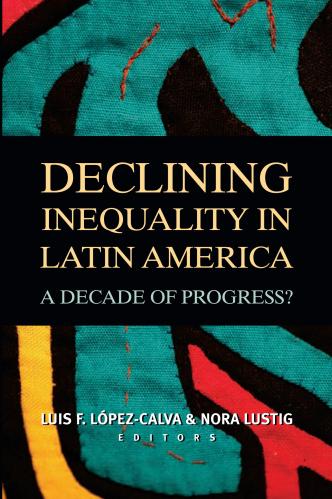
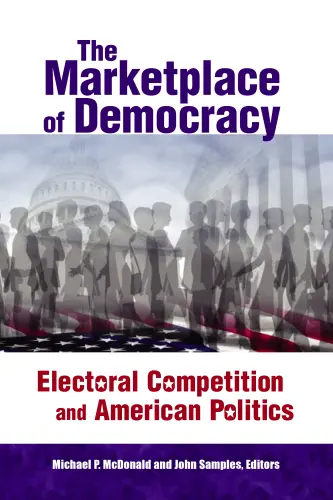
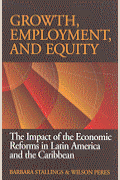

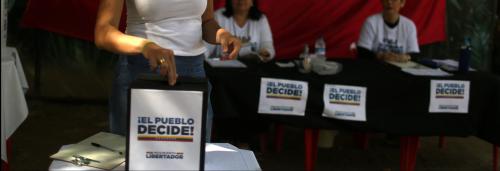
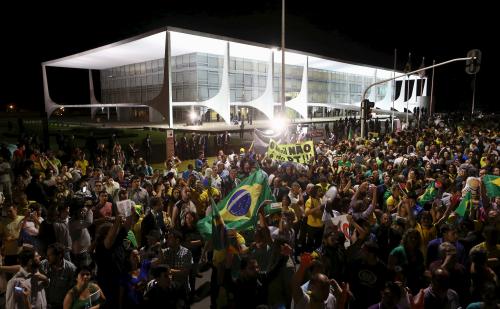

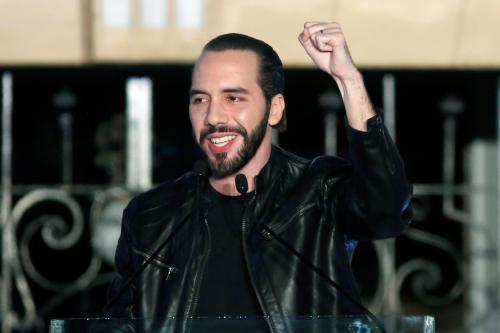
Commentary
How Trump and disruption politics may impact Latin American elections in 2018
December 27, 2017